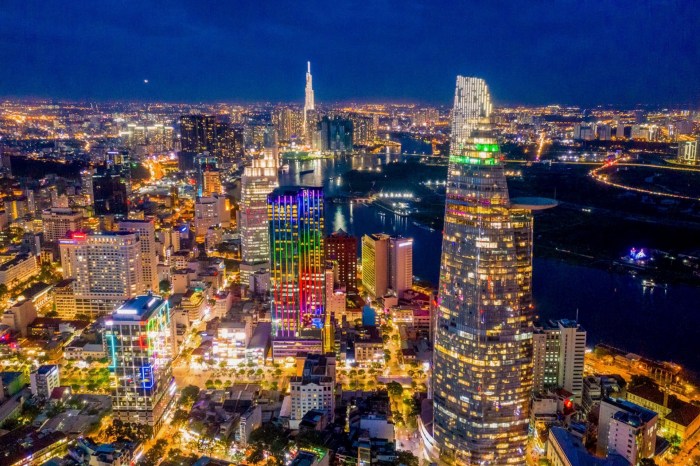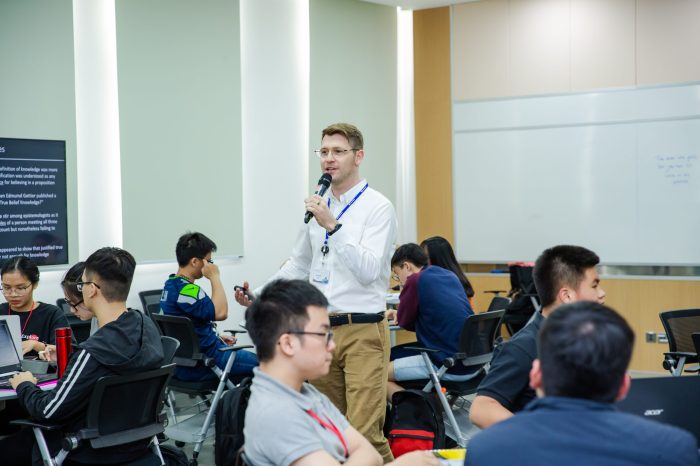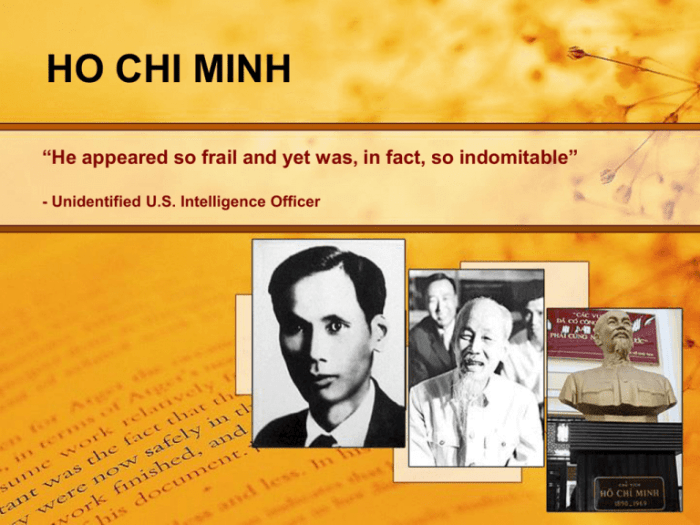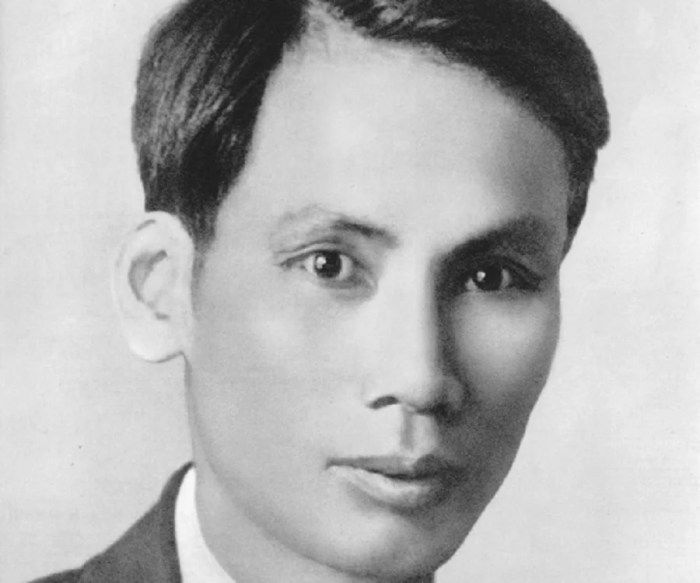Ho chi minh political/economic philosophy – Ho Chi Minh’s political and economic philosophy has left an indelible mark on Vietnam’s history and continues to shape its present and future. This discourse delves into the core principles, influences, and impact of Ho Chi Minh’s ideologies, providing a comprehensive understanding of their enduring legacy.
Ho Chi Minh’s political philosophy, rooted in Marxism-Leninism, emphasized national independence, self-determination, and social justice. His economic beliefs, influenced by both socialist and nationalist ideas, aimed to create a self-reliant and equitable society.
Ho Chi Minh’s Political Philosophy

Ho Chi Minh’s political ideology was a blend of Marxism-Leninism, Vietnamese nationalism, and Confucian ethics. He believed in the importance of national independence, social equality, and economic development.
Ho Chi Minh’s political thought was influenced by his experiences in France, where he witnessed the rise of fascism and the exploitation of colonial peoples. He also studied the works of Karl Marx and Vladimir Lenin, and was inspired by their ideas of class struggle and revolution.
Ho Chi Minh’s political philosophy had a profound impact on Vietnam. He led the country to independence from French colonial rule and established the Democratic Republic of Vietnam in 1945. He also played a key role in the Vietnam War, which resulted in the reunification of Vietnam under communist rule in 1975.
Key Principles of Ho Chi Minh’s Political Philosophy
- National independence: Ho Chi Minh believed that Vietnam should be free from foreign domination and that the Vietnamese people had the right to self-determination.
- Social equality: Ho Chi Minh believed that all people are equal and that there should be no discrimination based on class, race, or gender.
- Economic development: Ho Chi Minh believed that Vietnam needed to develop its economy in order to improve the living standards of its people.
Ho Chi Minh’s Economic Philosophy

Ho Chi Minh’s economic beliefs were based on the principles of Marxism-Leninism, but he also adapted them to the specific conditions of Vietnam. He believed that the state should play a leading role in the economy, but that the private sector should also be allowed to operate.
Ho Chi Minh’s economic ideas were put into practice in Vietnam after the country gained independence in 1945. The government nationalized key industries, such as banking, transportation, and energy. However, the government also allowed private businesses to operate in other sectors of the economy.
Ho Chi Minh’s economic policies were relatively successful in the early years of independence. The economy grew rapidly and the standard of living of the Vietnamese people improved. However, the economy began to stagnate in the 1960s and 1970s, due to a combination of factors, including the Vietnam War and the collapse of the Soviet Union.
Main Tenets of Ho Chi Minh’s Economic Beliefs, Ho chi minh political/economic philosophy
- State ownership of key industries
- Private sector participation in other sectors of the economy
- Economic planning by the government
- Emphasis on agricultural development
Ho Chi Minh’s Legacy: Ho Chi Minh Political/economic Philosophy
Ho Chi Minh is considered one of the most important figures in Vietnamese history. He is revered as the father of Vietnamese independence and the founder of the modern Vietnamese state. His political and economic philosophies continue to influence Vietnam today.
However, Ho Chi Minh’s legacy is also complex. He has been criticized for his authoritarian rule and for his role in the Vietnam War. Nonetheless, he remains a popular figure in Vietnam and his ideas continue to inspire people around the world.
Enduring Influence of Ho Chi Minh’s Political and Economic Philosophies
- National independence: Vietnam remains an independent country today, and Ho Chi Minh’s ideas continue to inspire people around the world who are fighting for freedom and independence.
- Social equality: Vietnam has made significant progress in reducing poverty and improving the living standards of its people. However, there is still much work to be done to achieve full social equality.
- Economic development: Vietnam is now one of the fastest growing economies in the world. However, the country faces a number of challenges, including corruption and environmental degradation.
Ho Chi Minh’s Role in the Vietnamese Revolution

Ho Chi Minh played a key role in the Vietnamese Revolution, which led to the country’s independence from French colonial rule in 1945. He was the founder of the Viet Minh, a communist-led resistance movement that fought against the French.
Ho Chi Minh also played a leading role in the negotiations that led to the Geneva Accords in 1954, which divided Vietnam into two countries, North Vietnam and South Vietnam.
Ho Chi Minh’s leadership was essential to the success of the Vietnamese Revolution. He was a charismatic and inspiring leader who was able to unite the Vietnamese people in their struggle for independence. He was also a skilled diplomat who was able to secure international support for the Vietnamese cause.
Impact of Ho Chi Minh’s Leadership on Vietnam’s Independence and Development
- Ho Chi Minh’s leadership was essential to the success of the Vietnamese Revolution, which led to the country’s independence from French colonial rule in 1945.
- Ho Chi Minh’s ideas continue to inspire the Vietnamese people today, and his legacy is a source of national pride.
- Vietnam has made significant progress in developing its economy and improving the living standards of its people since Ho Chi Minh’s death in 1969.
Ho Chi Minh’s Internationalism

Ho Chi Minh was a committed internationalist who believed in the importance of solidarity and cooperation among all peoples. He was a strong supporter of the anti-colonial movement and the fight for peace and justice around the world.
Ho Chi Minh played a key role in promoting global peace and justice. He was a founding member of the World Peace Council and the Afro-Asian People’s Solidarity Organization. He also played a leading role in the Non-Aligned Movement, which was a group of countries that were not aligned with either the United States or the Soviet Union.
Influence of Ho Chi Minh on International Movements for Decolonization and Social Progress
- Ho Chi Minh’s ideas and example inspired people around the world who were fighting for freedom and independence from colonial rule.
- Ho Chi Minh’s commitment to peace and justice made him a respected figure on the international stage.
- Ho Chi Minh’s legacy continues to inspire people around the world who are working for a more just and equitable world.
Question & Answer Hub
What were the key principles of Ho Chi Minh’s political philosophy?
Ho Chi Minh’s political philosophy emphasized national independence, self-determination, social justice, and the unity of the Vietnamese people.
How did Ho Chi Minh’s economic philosophy differ from traditional Marxism?
Ho Chi Minh’s economic philosophy incorporated elements of both socialism and nationalism, emphasizing self-reliance, economic independence, and a mixed economy.
What was the impact of Ho Chi Minh’s leadership on Vietnam’s independence and development?
Ho Chi Minh’s leadership was instrumental in Vietnam’s struggle for independence from French colonial rule and the establishment of a socialist republic.